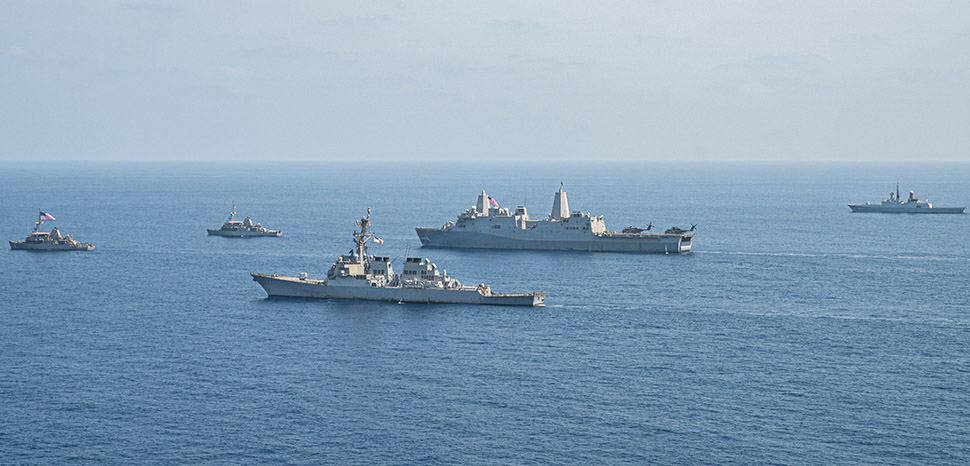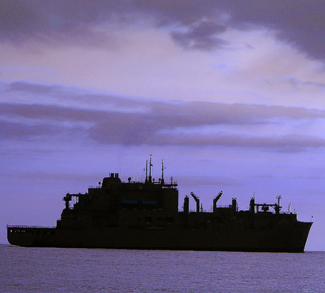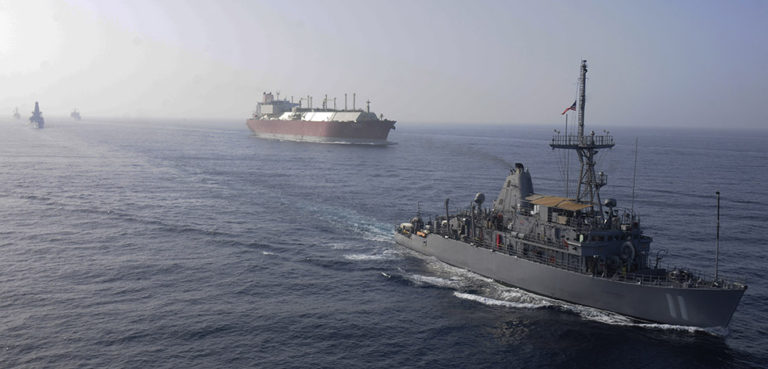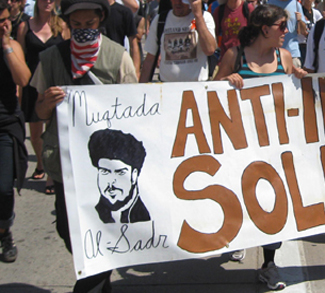The Houthi movement, a Shia militant group backed by Iran in Yemen’s civil conflict against Saudi Arabia and its allies, asserts its focus is on targeting vessels associated with Israel and its allies to pressure a termination of the Gaza war. The stance has led to numerous commercial ships being attacked or delayed in the crucial maritime passage stretching from the Suez Canal in Egypt through the Red Sea and Bab al-Mandab strait, prompting intervention from Western countries.
Iran’s involvement in supporting both the Houthis in Yemen and Hamas in Gaza is a significant factor in the geopolitical dynamics of the Middle East. This support is part of Iran’s broader strategy in the region, which aims to extend its influence and counter the presence of rival powers, particularly Saudi Arabia and Israel. Iran backs the Houthis primarily through the provision of military assistance, including weapons, training, and financial support. This support has been a key factor in the escalation and prolongation of the conflict in Yemen.
Implications for Key Maritime Trade Routes
Over the last month, four of the world’s five largest container shipping companies – Maersk, Hapag-Lloyd, CMA CGM, and MSC – temporarily suspended their services in the Red Sea. This vital route is crucial for traffic through the Suez Canal in Egypt. The suspension of global shipping flows in the Red Sea comes amid escalating attacks by Iran-backed Houthi militants from Yemen, who are armed with sophisticated missiles rockets. The sudden closure of this significant naval trade route has led to increased navy deployments by the United States, United Kingdom, and allies in the Middle East. There are even rumblings of potential military action against the Houthis in Yemen to restore unrestricted passage.
The ongoing attacks, which have persisted for weeks, have recently intensified. On December 15, the Houthis not only issued a threat to attack a ship but also carried out a drone strike on one vessel and launched two ballistic missiles at the Palatium III, owned by MSC. Remarkably, one of the missiles struck the vessel, marking the first successful deployment of an anti-ship ballistic missile by the Houthis in Yemen. Subsequently, on December 16, a US Navy battleship, the USS Carney, intercepted and downed 14 drones over the Red Sea, while the British Royal Navy battleship HMS Diamond eliminated another drone.
Major shipping companies have subsequently announced that their vessels would avoid the Suez Canal in both directions until the safety of the Red Sea passage is assured. Some of these ships will be redirected through the Cape of Good Hope. Collectively, these four companies represent 53% of the worldwide container trade. Following their example, smaller container operators, as well as oil tankers and dry-bulk carriers, will likely decide to adopt similar measures.
The Bab al-Mandab strait is situated between Africa and the Arabian Peninsula, serving as a narrow passage through which approximately 13% of the world’s trade by volume typically passes, including an estimated 30% of global container traffic.
More recently, the US Navy reported intercepting two anti-ship missiles and destroying three boats carrying Houthi combatants, in what was described as a thwarted hijacking of the Maersk Hangzhou, a cargo vessel. In response to these heightened risks, Danish shipping leader Maersk announced on Tuesday a suspension of all Red Sea transits, joining several other freight companies and energy conglomerate BP in avoiding the area. Yahya Sarea, a military spokesperson for the Houthis, warned that “any US attack will be met with retaliation or punishment.”
On January 3, a coalition of countries including the US, UK, Germany, Italy, Denmark, the Netherlands, Bahrain, Belgium, Canada, Japan, Australia and New Zealand, issued an ultimatum against the Houthi attacks, labelling them as “illegal, unacceptable, and highly destabilising,” while hinting at possible actions without any specific details. The joint statement demanded an immediate halt to these unlawful assaults and the release of wrongfully held ships and their crews. It emphasized that the Houthis would be held accountable for any further endangerment of lives, disruption to the global economy, or obstruction of the free movement of trade in vital maritime channels of the region.
Ever since the Red Sea conflict began, naval forces from the US, UK, and France have frequently engaged in combat against missiles and drones launched from Yemen. With the U.S. spearheading a coalition dedicated to maintaining maritime security, these operations have led to unexpected rises in military spending due to the high cost of the weaponry involved. For instance, the French Languedoc frigate expended €1 million on Aster 15 surface-to-air missiles last month to intercept Iran-produced Shahed-type drones, presumably operated by the Houthis, which are valued at a maximum of €20,000 each. This disparity in costs is significantly impacting the budgets of nations committed to preserving stability in the region.
Across Europe and North America, there is an increasing realization among military circles that Western armed forces must adapt their acquisition strategies to counter more cost-effective threats. Experts suggest that future operations should integrate an array of weapons, including economical air defence systems, rather than solely relying on highly advanced and expensive platforms. However, at present time, these forces will continue to find themselves obliged to utilize some of the costliest weapons in their arsenal.
Impact on Global Economy
The Red Sea crisis has created an astronomical increase in shipping costs. For instance, transporting a 40-foot (66 cubic metres) container from Asia to Northern Europe now costs $4,000 – a 173% increase since the attacks began. This also has an impact on the cost of insurance for the vessels. For instance, if a vessel is valued at $100 million, the insurance was previously priced at a rate of 0.1% to 0.2%, totalling around $100,000 to $200,000. Now, with the elevated rate at 0.5%, the insurance cost would be $500,000. Therefore, the increase in insurance cost for a vessel of this value would be in the range of $300,000 to $400,000.
The increased shipping costs have a significant inflationary impact, and the effect is expected to slowly seep into the economy, potentially exacerbating an already fragile recovery.
The Houthis initially targeted ships linked to Israel but have since expanded their attacks, launching over 100 drone and missile attacks on various ships navigating the Red Sea since November 2023. Their offensive posture is further reinforced by Iran’s deployment of military assets such as the Alborz destroyer in the Red Sea. The security concerns are escalating, with international efforts underway to mitigate the situation.
De-escalating the crisis in the Red Sea represents a complex task that calls for a multi-faceted approach, combining diplomatic, economic, and security measures. While the conflicts in the Red Sea and Gaza are interlinked, they require separate negotiations due to their distinct local dynamics. However, these negotiations should be part of an integrated regional strategy that addresses the broader issues facing the Middle East, such as religious conflicts, power struggles, and foreign interventions.
Recent developments confirm Iran’s continued support for the Houthis in Yemen and Hamas in Gaza. Significant interactions between Houthi and Iranian officials have been reported, with Houthi representative Mohammad Abdul Salam meeting with members of Iran’s Shura Council and the Iranian Foreign Minister. Iran has openly rejected calls from the United States and the United Kingdom to stop supporting Houthi attacks on Israeli-linked vessels in the Red Sea, demonstrating its commitment to backing the group’s activities.
The views expressed in this article belong to the authors alone and do not necessarily reflect those of Geopoliticalmonitor.com.




